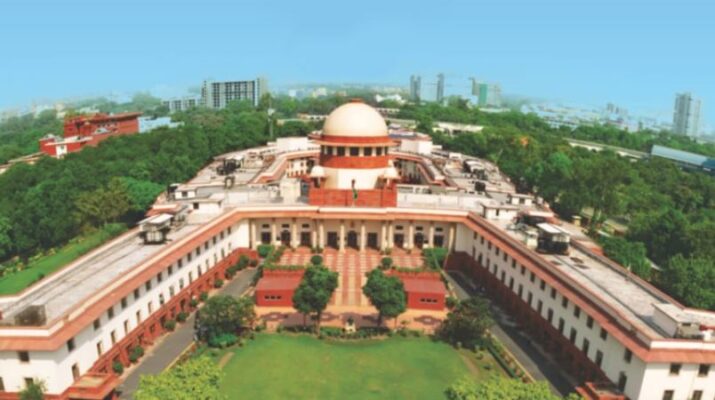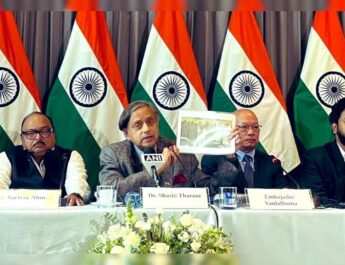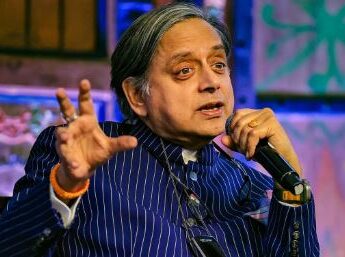New Delhi: On Monday, the Supreme Court expressed surprise regarding a petition that requested the application of Article 355 in West Bengal, which cited incidents of violence in Murshidabad district during protests against the Waqf Amendment Act.
Advocate Vishnu Shankar Jain presented the issue to a bench consisting of Justice BR Gavai and Justice Augustine George Masih.
The petitioner sought an order for the Union Government to invoke Article 355 of the Constitution, citing what was termed “external aggression and internal disturbance” in West Bengal, as reported by LiveLaw.
Vishnu Jain Shankar requested permission to file an application related to the petition, which is set to be heard on Tuesday. He advocated for the deployment of central forces in the state and asked for the opportunity to provide additional information for the record.
In response to the mention, Justice Gavai noted that the Court has already faced accusations of overstepping its bounds into executive and legislative matters.
“Are you asking us to issue a mandamus directing the Union…? We are already being accused of encroaching on Parliamentary and Executive functions,” Justice Gavai was quoted by LiveLaw.
The comments seemed to reference the recent debate surrounding the Supreme Court’s directive to the President regarding the timely assent to bills. Just last week, Vice President Jagdeep Dhankhar had strongly criticized the Court’s instruction to the President.
Violence broke out on April 11 in Murshidabad, a district with a Muslim majority, during a protest against the Waqf (Amendment) Act, which had recently been enacted following its passage in Parliament and the President’s approval.
The protest escalated into violence, leading to the tragic deaths of a father and son, while also causing numerous injuries and property damage. Many residents of Murshidabad fled their homes in search of safety following the unrest.
Subsequently, the protest spread to neighboring districts, including Malda, South 24 Parganas, and Hooghly, where reports of arson, stone-throwing, and road blockades emerged.
On Thursday, Vice President Jagdeep Dhankhar raised concerns regarding the judiciary’s decision to impose a timeline for the president’s actions, suggesting that the Supreme Court should not assume the role of a “super Parliament.” He emphasized that the court should not wield such power over democratic institutions.
Dhankhar’s remarks were directed at the judiciary during a speech to Rajya Sabha interns, following the Supreme Court’s initiative to establish a timeline for the president to approve bills that the governor had reserved for her consideration.
He stated, “We now have judges who will legislate, execute functions, and act as a super Parliament, all while being completely unaccountable, as the law does not apply to them.”




